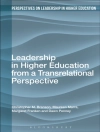A rich interdisciplinary study of the diversity and dynamics of the migrations of displaced peoples across the Global South
By the end of 2022, the number of forcibly displaced people worldwide had reached a record high of 100 million, the highest figure since the Second World War. The Russian invasion of Ukraine and the Taliban political takeover in Afghanistan exacerbated an already protracted global refugee situation, but climate-related events also played a part in forcing millions of people to leave their homes in search of more habitable living areas.
Making Routes: Mobility and Politics of Migrant in the Global South provides fresh understandings of mobility flows, transnational linkages, and the politics of migration across the Global South, in Africa, Asia, and Latin America. Moving away from North–South, East–West binaries and challenging the conception that migratory movements are primarily unidirectional—from South to North—it explores how state policies, migrants’ trajectories, nationalism and discrimination, and art and knowledge production unfold in places as widespread as Egypt, Turkey, Myanmar, Nicaragua, and Haiti.
Seventeen academics, activists, and artists from a range of backgrounds and disciplines, including anthropology, cultural studies, ethnomusicology, and international relations reveal the diverse narratives, migration patterns, forms of agency, and laws that make up the complex reality of South–South migration, offering vital new pathways for research in migration studies today.
Contributors:
– Chowdhury R. Abrar , Refugee and Migratory Movements Research Unit (RMMRU), Dhaka, Bangladesh
– David Bolanos , Independent photographer, Costa Rica
– Danyel M. Ferrari , Rutgers University, New Brunswick, United States
– Leander Kandilige , University of Ghana, Accra
– Mélanie V. Léger-Montinard , Federal University of Rio de Janeiro, Brazil
– Duduzile S . Ndlovu , University of the Witwatersrand, Johannesburg, South Africa
– Evrim Hikmet Öğüt , Mimar Sinan Fine Arts University, Istanbul, Turkey
– Sara Sadek , The American University in Cairo, Egypt
– Tasneem Siddiqui , University of Dhaka, Bangladesh
– Sally Souraya , Independent artist, London United Kingdom
– Allison B. Wolf , Universidad de los Andes, Bogota, Colombia
– Kudakwashe Vanyoro , University of the Witwatersrand, Johannesburg, South Africa
– Thomas Yeboah , Kwame Nkrumah University of Science and Technology, Kumasi, Ghana
Inhaltsverzeichnis
Acknowledgments
List of Abbreviations
Foreword by Ibrahim Awad
Introduction
Navigating Knowledge Regimes in Various National Contexts
1. On the Threshold: Conducting Research About Refugees in Egypt
Sara Sadek
2. Researching Migration on the African Continent: Reflecting on Power, Location, and Research Partnership Duduzile Ndlovu and Kudakwashe Vanyoro
3. Memorial Artwork of Deaths in Transit: Geographic and Temporal Imaginaries of Transnational Empathy
Danyel Ferrari
State Politics and Global Governance
4. Photo Essay: A Means to Shelter
Sally Souraya
5. Managing Crisis?: (Re)Thinking Turkey’s Discourse of “Refugee Crisis”
Eda Sevinin
6. Transformation of Citizens to Refugees: The Case of Rohingyas of Myanmar
Tasneem Siddiqui and C.R. Abrar
7. West African Migration Regimes and the Externalization of EU Migration Management Policies
Leander Kandilige and Thomas Yeboah
Migrants, Im/mobility and Migration Regimes
8. PRAN WOUT LA: Experiences and Dynamics of Haitian Mobility
Melanie Montinard
9. Contesting Borders, Protesting Deportation: The Refugee from Darfur in Amman and Cairo
Elena Habersky
10. “The Gospel Doesn’t Know Borders, Neither Do We‘: Congolese Migration, Religion, and Entrepreneurship in Three Metropolises: Istanbul, Rio de Janeiro, and Guangzhou.
Gerda Heck
11. Sounds of Transit Migration: Chaldean-Iraqi Migrant Music in Istanbul
Evrim Hikmet Öğüt
Nation-State and Nationalism in and through Migratory Context
12. Photo Essay: Sugarcane harvest: a sweet, deadly path for migrants in Guanacaste
David Bolanos
13. Representing Nicaraguan immigration to Costa Rica through COVID-19
Carlos Sandoval
14. Displaced Venezuelan Migrants in Colombia: An Example of Global Oppression
Allison B. Wolf
Conclusion
Notes on Contributors
Über den Autor
Ibrahim Awad is director of the Center for Migration and Refugee Studies (CMRS) at the American University in Cairo.












